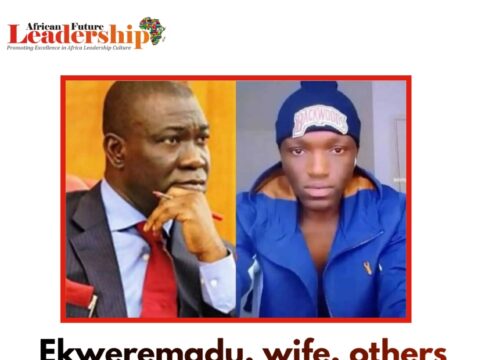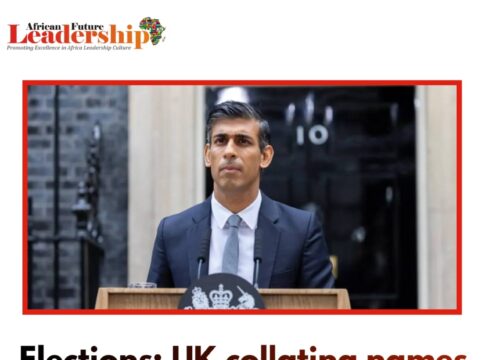Former Nigerian Deputy Senate President, Ike Ekweremadu, wife, daughter and a doctor have been convicted of organ trafficking, in the first verdict of its kind under the Modern Slavery Act.
The 60-year-old politician, 60, his wife, Beatrice, 56, daughter Sonia 25, and Dr Obinna Obeta, 51, were found guilty of facilitating the travel of a young man to Britain with a view to his exploitation after a six-week trial at the Old Bailey, according to the UK Guardian.
They criminally conspired to bring the 21-year-old Lagos street trader to London to exploit him for his kidney, the jury found.
The UK Guardian said he could not reveal the name of the donor for legal reasons, adding that he had been offered an illegal reward to offer his kidney to the senator’s daughter.
It also said Sonia’s kidney disease forced her to drop out of a master’s degree in film at Newcastle University, the court heard as it said Sonia was found not guilty.
READ MORE: Nigeria raises rates, cites price and exchange rate pressures
In February 2022 the man was falsely presented to a private renal unit at Royal Free hospital in London as Sonia’s cousin in a failed attempt to persuade medics to carry out an £80,000 transplant.
For a fee, a medical secretary at the hospital acted as an Igbo translator between the man and the doctors to help try to convince them he was an altruistic donor, the court heard.
The prosecutor Hugh Davies KC told the court that Ekweremadus and Obeta had treated the man and other potential donors as “disposable assets – spare parts for reward”. He said they entered an “emotionally cold commercial transaction” with the man.
Ekweremadu’s attitude as a successful lawyer and founder of an anti-poverty charity who helped draw up Nigeria’s laws against organ trafficking portrayed “entitlement, dishonesty and hypocrisy”, Davies told the jury.
Davies said Ekweremadu, who owns several properties and had a staff of 80, “agreed to reward someone for a kidney for his daughter – somebody in circumstances of poverty and from whom he distanced himself and made no inquiries, and with whom, for his own political protection, he wanted no direct contact”.
He added, “What he agreed to do was not simply expedient in the clinical interests of his daughter, Sonia, it was exploitation, it was criminal. It is no defence to say he acted out of love for his daughter. Her clinical needs cannot come at the expense of the exploitation of somebody in poverty.”
Ekweremadu, who denied the charge, told the court he was the victim of a scam. Obeta, who also denied the charge, claimed the man was not offered a reward for his kidney and was acting altruistically. Beatrice denied any knowledge of the alleged conspiracy. Sonia did not give evidence.
WhatsApp messages showed to the court revealed Obeta charged Ekweremadu N4.5 million (about £8,000) made up of an “agent fee” and a “donor fee”.
Ekweremadu and Obeta admitted falsely claiming the man was Sonia’s cousin in his visa application and in documents presented to the hospital.
Davies said Ekweremadu ignored medical advice to find a donor for his daughter among genuine family members. He said: “At no point in time was there ever any intention for a family member close, medium or distant to do what could be paid for from a pool of donors.”
The judge, Justice Jeremy Johnson, will pass a sentence on 5 May.




